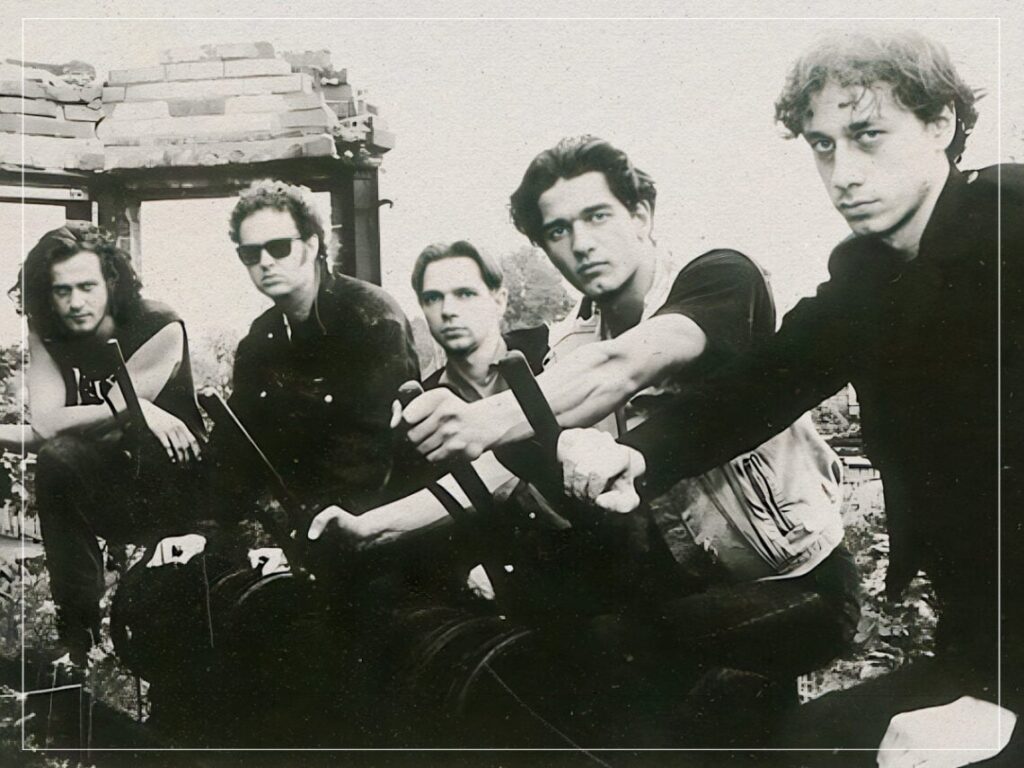Die Skeptiker: the punks who took on the East German state
 Posted On
Posted On
(Credits: Far Out / Discogs)
Punk music, as a movement, was built on a sense of rebellion. In the UK, punk bands like The Clash or Sex Pistols rebelled against the musical status quo of the 1970s, as well as challenging the authority of the state and its actions. Ultimately, though, these Western rebellions were largely limited to the music charts; their revolutionary power rarely had any kind of real-life impact on systems of government or real-world authority. The same cannot be said, however, for the punks of the German Democratic Republic – East Germany, to you and I – who were viewed as a legitimate political threat by the state.
Seemingly, every totalitarian regime of the mid-20th century recognised the dangers of punk as a subculture. If young people started stepping out of line or challenging the collectivism that held together states like The USSR, Cuba, and East Germany, then the entire system was at risk of falling.
The East German state had been totalitarian from the very beginning, with everything from literature to architecture heavily monitored and regulated by the government. Music was no different, and the vast majority of releases were put out on the state-owned label Amiga, which expectedly feared punk.
Nevertheless, East Germany fostered one of the most diverse and enduring punk scenes worldwide, thanks largely to innovative groups like Die Skeptiker. Formed in 1986 in the heart of East Berlin, Die Skeptiker (The Skeptics) embodied every element of the punk rebellion. Existing in the underground scene, the band were regularly targeted by the state and police, but it never stopped their musical mission.
Musically, Die Skeptiker was heavily influenced by other defiant German musicians, namely Ideal and Nina Hagen. Due to the restrictions put on Western music, the influences of the band were fairly restricted to those other East German groups. Taking that into account, the diverse sonic offerings of the band are even more impressive. Throughout their discography, the band drew on everything from hardcore punk to ska, creating one of the most original sounds in all of punk rock.
With lyrics detailing the reality of life under totalitarian communism, it was unthinkable that Die Skeptiker would ever enjoy a record deal with the state-owned Amiga label. Undeterred, the band’s first releases, including the 1988 debut album O.T. (Ohne Titel), were self-recorded and released on DIY cassette tapes to be distributed at local punk shows and between friends. Not much got past the watchful eye of the DDR, but not even the state police could fully destroy the punk movement of East Germany.
In fact, the more the state targeted the punk scene, the more ammunition bands like Die Skeptiker had to write stunningly rebellious music. The battle was ongoing, and it must be said that the punks looked as if they were winning. Eventually, the state had to admit defeat, and restrictions over rock and punk music were lifted towards the end of the 1980s, as the wall was on the verge of coming down. Amiga even featured the band on the compilation album Rock-Bilanz ’89 and went on to produce some of their subsequent records.
The landscape of punk is chocked full of rebellious bands, but not many of those groups had the capacity to take on the seemingly all-encompassing power of the East German government, and even fewer would emerge from that battle victorious. Speaking both to their diverse sound and enduring spirit, Die Skeptiker lasted long after the fall of communism in Europe, releasing a plethora of incredible records throughout the 1990s, up until their last release, 2018’s Kein Weg Zu Weit. Erich Honecker must be spinning in his grave.
[embedded content]
Related Topics


